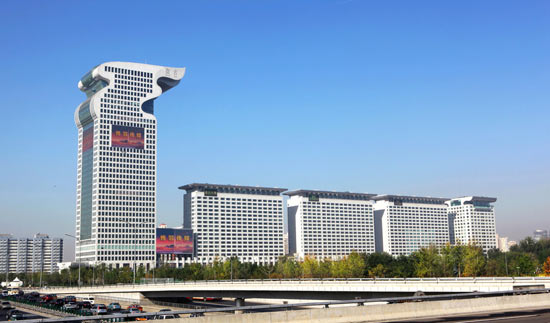
BEIJING, April 2 (Xinhua) -- Parched Chinese cities and astute businesspeople are picking up the pace in tapping reclaimed water amid the country's latest moves to boost green initiatives and recycling development.
Reclaimed water, or urban wastewater treated to be used mainly in industrial cooling systems and urban landscape irrigation, has been on the agendas of an increasing number of Chinese companies, Tuesday's China Securities Journal (CSJ) reported.
Beijing Originwater Technology Co., a leading Chinese water services company, scored 340 million yuan (54.3 million U.S. dollars) in operating revenues last year in its water supply and drainage business, up 274.5 percent year on year, according to its annual report.
In late December, the company invested 100 million yuan in a joint venture with Beijing Drainage Group Co., a state-owned company that runs the city's major water recycling projects.
Other environmental services companies have also strengthened investment in the reclaimed water industry. Beijing SPC Environment Protection Tech Co. projected earnings of 45 million yuan through its reclaimed water project in Taiyuan, Shanxi Province, according to the CSJ.
China has written reclaimed water utilization into its development plan for 2011 through 2015, vowing to inject a total of 30.4 billion yuan into related recycling projects over the five year period.
Echoing the national guideline, cities have started drafting their respective plans for tapping reclaimed water.
Faced with a chronic water shortage, Beijing reportedly consumed 750 million cubic meters of reclaimed water in 2012, accounting for 20 percent of the city's total water consumption volume.
The capital city plans to boost reclaimed water consumption to at least 1 billion cubic meters per year by 2015 and maximize the recovery rate of wastewater. Other cities have also rolled out schemes, including Nanjing, Wuhan, Shanghai, Xi'an and Hangzhou, the CSJ said.
Industry insiders, however, said that if the country aims to cultivate a market for reclaimed water, it has to offer relevant subsidies and other preferential policies to reduce the current high costs for treating sewage.
















 Heavy rainfall hits S China's Guangxi
Heavy rainfall hits S China's Guangxi


![]()
